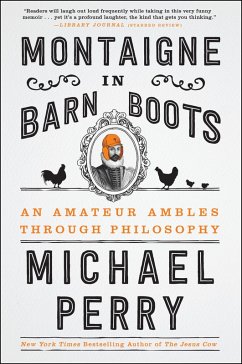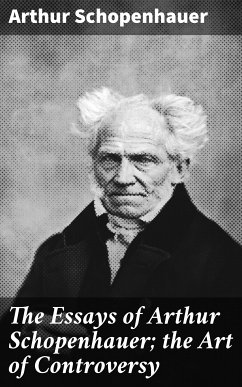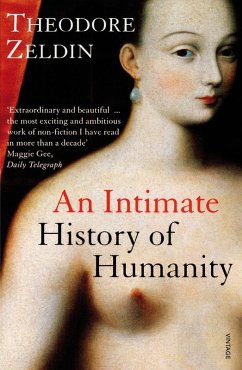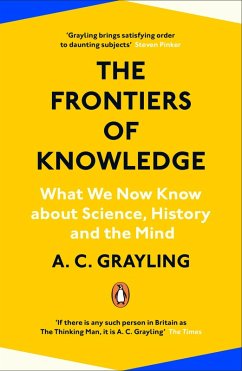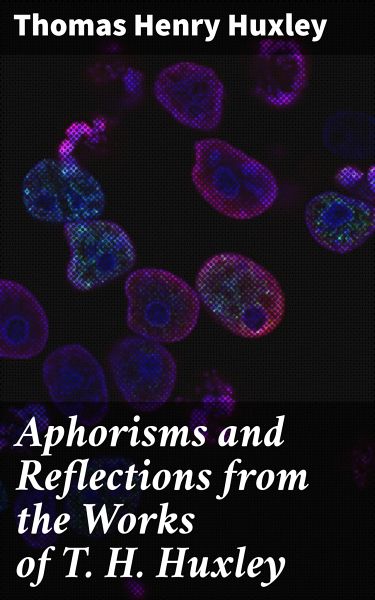
Aphorisms and Reflections from the Works of T. H. Huxley (eBook, ePUB)
Thought-Provoking Reflections and Philosophical Musings
Redaktion: Huxley, Henrietta A.

PAYBACK Punkte
0 °P sammeln!
In "Aphorisms and Reflections from the Works of T. H. Huxley," the esteemed scholar and biologist distills the essence of his thought through a collection of poignant aphorisms and cognitive reflections. Huxley'Äôs literary style showcases his characteristic clarity, eloquence, and incisive wit, echoing the intellectual currents of the Victorian era that both celebrated and questioned the natural sciences. This compilation traverses various themes, including evolution, ethics, and the pursuit of knowledge, making it a vital resource for understanding the intersection of science and philosoph...
In "Aphorisms and Reflections from the Works of T. H. Huxley," the esteemed scholar and biologist distills the essence of his thought through a collection of poignant aphorisms and cognitive reflections. Huxley'Äôs literary style showcases his characteristic clarity, eloquence, and incisive wit, echoing the intellectual currents of the Victorian era that both celebrated and questioned the natural sciences. This compilation traverses various themes, including evolution, ethics, and the pursuit of knowledge, making it a vital resource for understanding the intersection of science and philosophy during a transformative period in Western thought. Thomas Henry Huxley, known as 'ÄúDarwin'Äôs Bulldog'Äù for his defense of evolutionary theory, was a prominent figure in science education and public discourse. His works often reflect a profound commitment to empirical evidence and rational inquiry, stemming from his background in biology and a fervent belief in the importance of scientific literacy. Huxley's engagement with complex philosophical questions and his experiences in the scientific community undoubtedly influenced the aphorisms presented in this collection, encapsulating his quest to make science accessible to all. This book is an essential read for those intrigued by the dialogue between science and philosophy, as it presents Huxley'Äôs timeless insights in a compact form. It serves not only as a reflection of his intellectual legacy but also as a source of inspiration for contemporary thinkers seeking to navigate the complexities of knowledge in an ever-evolving world.
Dieser Download kann aus rechtlichen Gründen nur mit Rechnungsadresse in A, B, BG, CY, CZ, D, DK, EW, E, FIN, F, GR, H, IRL, I, LT, L, LR, M, NL, PL, P, R, S, SLO, SK ausgeliefert werden.




